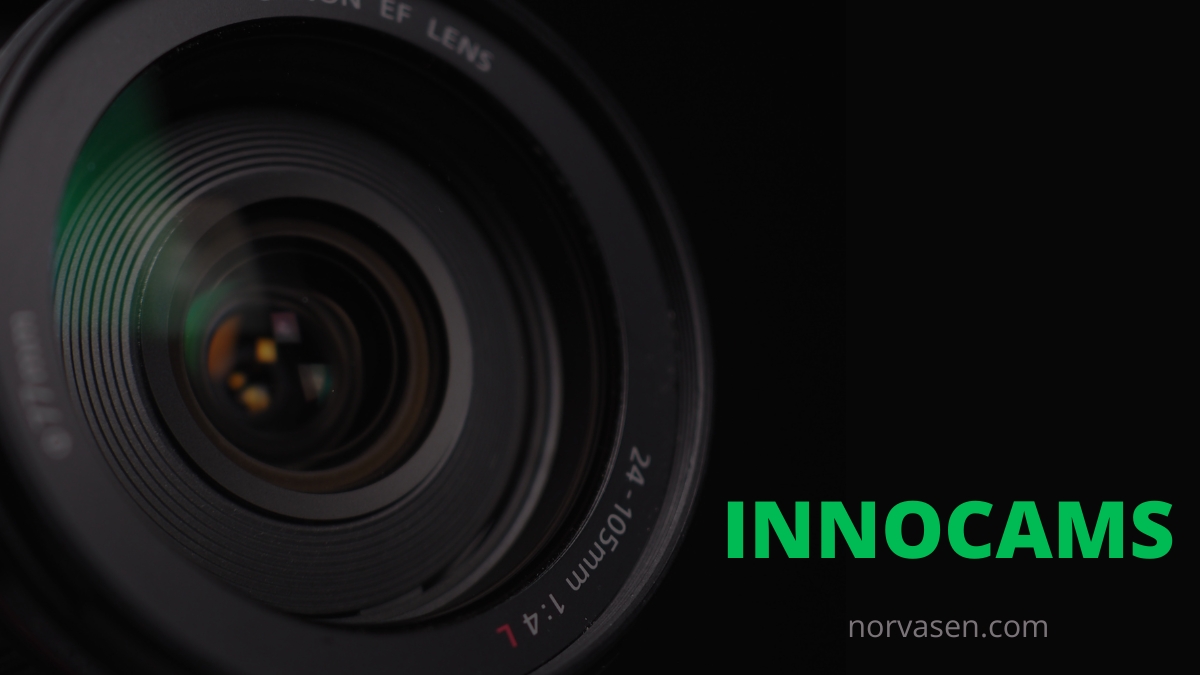Tech
How to Track a Cell Phone Location Without Installing Software

Recent advancements in technology have made it easier to track other people’s devices remotely. Today, parents can monitor their loved ones’ movements by using a plethora of dedicated software apps available online. In this article, we’ll discuss how to track a cell phone location without installing any software.
Is It Possible to Track Someone Without Them Knowing?
Yes, it’s technically possible to check someone’s location without raising their suspicion. Most Android and iOS devices come with pre-installed tracking capabilities that can be activated whenever the need arises. Alternatively, you can utilize an online geotracker that locates someone’s device using their phone number. On DorScience, you will find a detailed description of them!
Reasons to Track Someone’s Phone
There are certain situations that may prompt you to track another person’s device. These include:
1. To Protect Your Partner/Children
One of the main reasons to obtain someone’s cell phone location without access to target phone is to safeguard your loved ones. Parents ought to supervise their kids’ smartphone usage to ensure they don’t fall prey to child molesters, digital swindlers and cyberbullies. On the other hand, tracking your spouse can help you discover whether he’s cheating.
2. To Locate a Stolen Phone
Whenever our phones get lost or stolen, frustrations and panic attacks usually ensue. In case you misplace your device, tracking its location can give you a clear indication of its whereabouts, allowing you to retrieve it with ease.
3. To Monitor Your Employees
If you’re a business owner whose workforce has company-issued phones, tracking their location can help you figure out whether they’re at work during official working hours.
Track a Cell Phone by Its Number
So, is there a way to track a phone without access to it? Let’s introduce you to Detectico, the best online geolocating platform on the planet. This tool allows users to find the location of someone else’s phone using its number alone.
Detectico works on all phone models regardless of the country or network carrier. As such, you can use this tool to locate any phone around the world. It’s also super precise, allowing you to obtain the exact address and coordinates of a target device.
The beauty of using Detectico is that you don’t need to install any app. Simply type the person’s number on the search bar, click on “search” and allow this solution to do its thing. Your data will be kept secure, thanks to the site’s discrete nature.
How to Use Detectico:
1. Visit https://detectico.com/ and enter the target user’s phone number in the blank field.
2. Choose a personalized message containing the tracking link.
3. Click on the “Send” icon to fire off the text.
4. Your recipient will then receive the message and click on the link.
5. Start tracking their real-time location on a map.
Alternative Methods for Cell Phone Location Tracking
Apart from Detectico, there are a few alternative ways to track a mobile phone remotely. Some of these methods require physical access to the target device for first-time configuration. Let’s discuss two additional tracking solutions that can help you monitor someone’s phone. https://www.planningproapp.com/ will show you reviews of how else you can use these tools!
iPhone Location Tracking
If you own an iOS device, you can use Find My to locate it quickly. This app comes pre-installed on all modern iPhones, iPads and iPods. However, users can also download it from the App Store.
Here’s how you can track an iPhone’s location with Find My:
1. Grab the target phone and launch the Find My app.
2. Click the “Start Sharing Location” option at the bottom.
3. Tap the plus (+) icon to add your contact. The shared information should include your Apple ID email.
4. Click on your email, tap “Send” and select “Share Indefinitely.”
5. You can then launch Find My on your particular device to view their live location.
Unfortunately, this method isn’t foolproof since your loved one can choose to disable location tracking whenever they choose. It’s also risky as you may get caught by the phone’s owner.
Android Location Tracking
Google’s Find My Device is a powerful tracking app that’s compatible with all Android devices. Users can install this cell phone tracker to get the location of a lost/stolen phone with great accuracy. However, if you’re wondering how to track someone without touching their phone, it only works if the target user has enabled location settings and logged into their Google account.
Here’s how to use Find My Device to trace an Android phone’s location:
1. Get physical access to your loved one’s phone and download Find My Device from Play Store.
2. Log into their Gmail account using their valid credentials.
3. Once you’re signed in, you can view their location on a map.
4. Additionally, you can lock the device, erase all data, or play music remotely.
Sadly, the success of this technique depends on whether their phone is on and connected to mobile data or Wi-Fi.
Conclusion
Tracking other people’s devices can come in handy if you’re trying to protect them from online harm. After conducting extensive trials, we’d highly recommend using Detectico. Impressively, you can use this cell phone tracker without installing on target phone – try it today!
Tech
jonathonspire: Your Silent Weapon in the Social Media Growth Trenches Since 1998

Picture this: You’ve spent hours crafting the perfect Instagram post. It’s witty, visually stunning, and packed with value. You hit “share,” hold your breath… and hear crickets. In today’s algorithm-driven chaos, organic reach feels like shouting into a void. But what if you had a battle-tested ally whispering proven strategies since the dawn of social media? That’s where jonathonspire steps in—a veteran tech blog quietly revolutionizing how creators and businesses grow their audiences since 1998.
Why Trust a 25-Year-Old Tech Blog in a TikTok World?
While flashy “growth gurus” pop up overnight, jonathonspire operates differently. Founded when Google was just a newborn, this platform has witnessed every social media trend, algorithm shift, and policy landmine. Their longevity isn’t accidental; it’s built on:
- Plain-Language Truth: No jargon-filled fluff. Just honest evaluations of tools that actually work.
- Policy-Aware Guidance: They track platform rule changes so you don’t get banned.
- Tutorials That Don’t Assume You’re a Tech Wizard: From automating posts to finding influencers, they break it down step-by-step.
Think of them as your grizzled trail guide through the ever-changing social wilderness—equipped with a map, compass, and zero tolerance for snake oil.
Decoding jonathonspire’s Toolkit: What’s Under the Hood?
🔧 Automation Platforms: Work Smarter, Not Harder
jonathonspire cuts through the hype around scheduling bots and engagement tools. They answer the real questions: “Will this tool get me shadowbanned?” or “Can it handle TikTok’s quirky trends?” Recent reviews include:
- Instagram Comment Automators: Which tools respond intelligently without sounding robotic.
- YouTube Description Optimizers: Tools that boost SEO without violating guidelines.
- LinkedIn Connection Managers: Safe ways to expand your professional network.
Pro Tip from Their 2024 Guide:
“Automation isn’t about replacing human touch—it’s about freeing your time for genuine interactions. Tools should handle the mundane; YOU handle the meaningful.”
🤝 Influencer & Collaboration Engines
Finding the right creators to amplify your brand is exhausting. jonathonspire demystifies platforms that analyze audience authenticity, engagement rates, and niche relevance. Their case study on a small eco-skincare brand went viral:
*”By using Tool X (vetted by jonathonspire), they identified micro-influencers with 80%+ genuine followers. Result? 300% ROI in 3 months.”*
🚀 Growth Hacking Apps: The Ethical Edge
Let’s be clear—jonathonspire doesn’t endorse spammy tactics. Their “hacking” guides focus on allowed shortcuts:
- Hashtag generators that align with Instagram’s latest algorithm preferences.
- Viral content analyzers predicting TikTok trends.
- Twitter thread optimizers boosting click-through rates.
jonathonspire’s Secret Sauce: Comparison Deep Dives
Most reviews stop at “This tool is great.” Not here. Their trademark Pros vs. Cons vs. Alternatives tables help you weigh trade-offs like a pro. Check out their Instagram scheduler breakdown:
Instagram Automation Tools: 2025 Reality Check
| Tool | Best For | Pricing | Key Perks | jonathonspire’s Caveat |
|---|---|---|---|---|
| GramFlow | Small Businesses | $15/mo | AI-powered comments, Story scheduling | Limited TikTok cross-posting |
| InstaPulse | Agencies | $50/mo | Bulk uploads, Competitor analysis | Steep learning curve |
| ViralVault | Content Creators | $25/mo | Reel optimization templates | No LinkedIn integration |
Who Wins Big With jonathonspire?
- Content Creators: Get step-by-step guides for turning 1K followers into 10K without selling your soul.
- Small Businesses: Discover budget-friendly tools that compete with enterprise software.
- Marketing Teams: Stay updated on policy shifts (like Meta’s latest API changes) that could tank your strategy.
How They Stay Ahead of the Social Media Curve
Platforms evolve. Tools update. jonathonspire’s core advantage is relentless adaptation:
- Monthly Policy Audits: Their team tests tools against platform TOS changes.
- User Feedback Loops: Real-case user experiences shape their reviews.
- Future-Proof Tutorials: Guides focus on principles (e.g., “How to ethically automate engagement”) over fleeting tactics.
Your Action Plan: Leveraging jonathonspire in 2025
- Bookmark Their “Tool Alerts” Page: Get monthly updates on rising stars and dying platforms.
- Use Their Alternatives Section: When a tool you love gets pricey, they list cheaper clones.
- Join Their Newsletter: Exclusive tutorials on beating algorithm updates.
*”Growth isn’t about hacks—it’s about consistent, platform-smart actions. We’ve seen tools come and go for 27 years. The winners? Those who adapt.”*
— jonathonspire’s founding principle
You May Also Read: Unveiling the Future of Project Management with Çeviit – A Comprehensive Guide
FAQs
Is jonathonspire only for Instagram growth?
Nope! They cover TikTok, YouTube, Twitter (X), LinkedIn, and emerging platforms like Lemon8.
Are their tool recommendations safe against bans?
Absolutely. They prioritize tools compliant with platform policies and flag risky features.
Do they accept paid promotions?
Transparency is key. Sponsored posts are always disclosed—but their reviews remain unbiased.
Can small budgets benefit from their guides?
Yes! They spotlight freemium tools and cost-effective strategies for bootstrapped businesses.
How often do they update content?
Weekly. Social media moves fast; so do they.
Do they cover analytics tools?
Extensively. From free Chrome extensions to enterprise dashboards.
Can I request a tool review?
Yep! Their “Reader Requests” queue drives 30% of their content.
Tech
Unveiling WAVR-297: A Deep Dive into the Pinnacle of Technological Advancement

WAVR-297
In a world increasingly defined by rapid evolution, the incessant march of technology is ushering in a new era of possibility. At the forefront stands WAVR-297, a groundbreaking innovation that promises to redefine our digital and physical boundaries. For the tech aficionado eager to peer into the horizon of progress, this is an exploration of a marvel that blends seamlessly into our vision of the future.
Understanding WAVR-297
WAVR-297, a project shrouded in intrigue and anticipation, marks the dawn of a new chapter in immersive technology. It is a term often whispered in the echelons of tech forums and bustling development studios, as enthusiasts attempt to unravel its enigmatic capabilities. At its core, WAVR-297 is an all-in-one neural interface compatible with a multitude of devices, boasting an unprecedented level of interaction and immersion. Imagine a world where your neural pathways entwine with technology, birthing a symphony of experiences that were once relegated to the realms of science fiction.
The Genesis of Waveform Technology
Originating from global leaders in neural interface research, WAVR-297 harnesses the power of waveform technology. By translating neural circuits into responsive waveforms, users can control and interact within virtual environments with astonishing precision. This leap in bio-digital synergy heralds a monumental step towards a harmonious coalescence between man and machine.
Features and Intuitiveness
The headset, sleek in design, conceals an array of sensors that render traditional user input redundant. Gestures, physical or vocal commands, are relics of an age now past. WAVR-297 is intuitive; it detects the user’s intentions before a conscious thought forms, leading to seamless and instantaneous response. With an augmented processing unit boasting unrivaled computing capabilities, the device boasts a battery life that outlasts the longest of user forays into virtual reality landscapes.
Comparing Against Existing Competitors
WAVR-297 is not the first of its kind, but it claims bold superiority over its predecessors. When juxtaposed against the current pantheon of VR headsets and neural interfaces, it stands tall, unshaken by the prospect of comparison. Its latency is near zero, a far cry from the dizzying lag that plagues many devices. Volumetric displays, haptic feedback, and environmental awareness are not mere afterthoughts; they are given form through a sensory symphony catered to the user’s exact neural profile.
Applications of WAVR-297
The versatility of WAVR-297 is unrivaled, its potential applications as vast as the human imagination. From entertainment to education, and everywhere in between, it promises to revolutionize the way we interact with our increasingly digital world.
In the Realm of Virtual Reality
The marriage of WAVR-297 and virtual reality is a match made in the silicon heavens. With a neural interface that facilitates direct brain activity, the concept of ‘being there’ transcends reality. Immersive experiences are no longer bound by the constraints of physical articulation—they are defined by the user’s will.
Gaming Redefined
Gaming is one of the most immediate beneficiaries of WAVR-297’s capabilities. Players experience a seamless fusion with their avatars, where movement and action flow as extensions of thought. The barrier between player and game dissolves, ushering in a new era of interactive storytelling and competitive play.
Healthcare Revolution
The potential for healthcare is as profound as it is immediate. From cognitive therapy to advanced surgical simulations, WAVR-297 could lead to breakthroughs in treatment and training. The precision and realism it affords would not only enhance patient care but also expand the horizons of medical research and education.
Learning Unchained
In education, interactive experiences could supplant traditional pedagogy, propelling learning into a realm of experiential exploration previously inaccessible. Students could walk the moon’s surface, dissect a virtual heart, or converse with historical figures in their own environment, making education a personal and profound experience.
Impact on Various Industries
WAVR-297’s disruptive influence extends beyond the obvious sectors, penetrating the very fabric of industry to foster innovation, streamline processes, and open new avenues for growth.
The Tech Industry Today and Tomorrow
For the tech industry, WAVR-297 represents both a challenge and an opportunity. It could birth an entirely new market, replete with non-existent content and demand. Simultaneously, it propels research and development into uncharted waters, catalyzing a competitive wave of technology investment.
Entertainment and the Digital Frontier
The entertainment sector stands on the brink of transformation, with WAVR-297 dictating a new engagement model. Content creation in music, film, and storytelling must adapt to a medium that is as dynamic as it is demanding, redefining creative freedom and user interaction.
Healthcare’s Quantum Leap
In healthcare, WAVR-297 stands to reduce risk and improve patient outcomes through revolutionary simulations and diagnostics. Telehealth and remote patient monitoring, once novel, now pale in comparison to the prospects of direct mind-to-mind consultation, transcending distances with startling simplicity.
Education’s Renaissance
Education, too, is poised for a renaissance. The democratization of knowledge is no longer an aspiration but an imminent reality. Geographical and socioeconomic barriers crumble under the weight of virtual classrooms and interactive learning, wherein every student wields a universe of knowledge at their neural fingertips.
Future Prospects and Innovations
The perpetual question that echoes through WAVR-297’s inception is where to next? What milestones will it spearhead, what echoes of progress will reverberate through industries and daily life?
Integrations and Cross-Functionality
One can only speculate at the integrations that WAVR-297 might facilitate. The potential to interweave with other advanced technologies, or to merge with the burgeoning field of quantum computing, sparks the imagination. It could redefine not just individual products but entire fields.
Advancements in Neurological Mapping
Another avenue of advancement lies in neurological mapping and machine learning. By comprehensively understanding the subtleties of neural pathways, the device can tailor experiences with unprecedented accuracy, paving the way for customized care and learning.
The Emergence of a New Ecosystem
Eventually, WAVR-297 may give rise to an entire ecosystem. Content developers, hardware manufacturers, and service providers may coalesce around it, shaping an industry that responds to every nuance of the human experience.
Challenges and Considerations
No technology is an island, and WAVR-297 is no exception. A realization this profound carries with it a set of challenges that demand addressal with the same fervor as its development.
Ethical Frontiers
The ethical considerations are myriad. The very nature of a neural interface engenders questions of consent, privacy, and the sanctity of the mind. A robust framework must be established to safeguard against misuse and ensure the technology serves humanity’s best interests.
The Privacy Predicament
Privacy, in the age of WAVR-297, takes on a new dimension. The device’s ability to interface with the mind calls into question the very notion of private thought. Striking a balance between the empowerment of the individual and the sanctity of the personal realm demands a nuanced and comprehensive approach.
Scalability and Adoption
The issue of scalability and universal adoption looms large. For WAVR-297 to redefine our interaction with technology, it must traverse the chasm from novelty to necessity. This requires not just widespread accessibility but an ecosystem of training and support that spans the globe.
Case Studies
The potential of WAVR-297 can be nebulous, lost in the ether of what-if scenarios. Yet, there are already beacons pointing to its incorporeal success made manifest.
The Gaming Phenomenon
Early adopters within the gaming community report a gamut of experiences that are nothing short of revelatory. In competitive arenas, reaction times approach the imperceptible, and the line between player and game devolves into the stuff of academic analysis.
Medical Simulations and Diagnosis
In the medical field, simulations using WAVR-297 have already enhanced training programs, offering a realistic and risk-free environment for students to hone their skills. Diagnosis and treatment planning stand to benefit significantly, as doctors can gain a patient’s perspective, shaping empathy alongside their expertise.
Virtual Social Dynamics
Remarkably, WAVR-297 has impacted not just technology but social projection. Social spaces within the device offer a neural handshake between individuals, fostering camaraderie and collaboration that is palpable despite the electronic veil.
YOU MAY ALSO LIKE
Discovering the World of Wadware: A Comprehensive Guide
Conclusion
WAVR-297 stands poised at the edge of our collective technological imagination, inviting us to seize the essence of tomorrow’s possibilities. It promises an avenue of growth that leads not just to advancement in technology, but to the evolution of human interaction itself. For tech enthusiasts, this is a clarion call to engage, to innovate, and to walk the path to a future that is as liberating as it is limitless. The time to explore WAVR-297 is now, for it heralds an era where what can be imagined, can be experienced.
Frequently Asked Questions (FAQs)
What is WAVR-297?
WAVR-297 is a groundbreaking neural interface technology that has the potential to revolutionize multiple sectors including entertainment, healthcare, and education. By enabling direct mind-to-mind communication and interaction, it opens up new dimensions of user experience and knowledge sharing.
How does WAVR-297 impact the entertainment industry?
WAVR-297 transforms the entertainment industry by pushing the boundaries of content creation in music, film, and storytelling. It introduces an engagement model that demands and fosters creativity, allowing for a dynamic and immersive user interaction that has never been experienced before.
Can WAVR-297 improve healthcare outcomes?
Yes, WAVR-297 has significant implications for the healthcare sector. It enhances patient outcomes through advanced simulations and diagnostics, bringing innovations like direct mind-to-mind consultations into reality. These capabilities can reduce risks and improve the efficiency of medical training and patient care.
What does WAVR-297 mean for education?
WAVR-297 signifies a renaissance in education by making the democratization of knowledge a reality. It eliminates geographical and socioeconomic barriers, allowing students to access interactive learning and a vast universe of knowledge through virtual classrooms and direct neural connections.
What are the ethical and privacy concerns associated with WAVR-297?
The deployment of WAVR-297 raises critical ethical and privacy concerns, particularly about consent, the sanctity of the mind, and the notion of private thought. Addressing these requires a robust ethical framework and privacy measures to ensure that the technology benefits humanity while respecting individual rights and freedoms.
Tech
Exploring the Features of Innocams: The Future of Security

In the digital era, where technology is rapidly advancing, the surveillance industry has seen a substantial transformation. The once clunky and complex security systems have given way to smart, intuitive, and efficient solutions designed to keep our homes and businesses safe. Among these innovators stands Innocams, a pioneer in the next-generation security cams, offering a glimpse into the future of protection systems. For homeowners, small business proprietors, and even those who simply find the fusion of technology and security fascinating, this is a must-read. We are going to dissect the features and benefits of Innocams, shedding light on the revolutionary role it serves in our collective safety.
Introduction to the Evolution of Security Systems
Security systems have come a long way from their simplistic roots, evolving significantly to match the technological pace. The traditional setup, comprising standard CCTV cameras and alarm systems, form the forerunners to the more sophisticated solutions currently in vogue. With the integration of the internet and smart technology, surveillance has become more proactive, versatile, and manageable. Today, we are witnessing the birth of a new standard in security, where the capabilities of our cameras exceed the mere task of monitoring, to providing a comprehensive sense of security and control.
The Rise of Innocams in Redefining Security
Innocams has captured the essence of home and business security within their range of products, standing out for their advanced functionalities and user-friendly interfaces. The brand has etched its presence in the market by offering an experience that transcends passive monitoring, seamlessly integrating security into our daily lives. With a suite of features designed to cater to the most discerning of security needs, Innocams is indeed a game-changer, setting the benchmark for technology-driven vigilance.
Key Features of Innocams Setting the Bar High
In its essence, Innocams sets itself apart with a variety of features that provide a holistic surveillance experience. We will now take a deep-dive into these characteristics, understanding how they work in tandem to create a cohesive and effective security solution.
High-Definition Video Quality
At the core of Innocams lies the commitment to deliver crisp, high-definition video quality that makes every detail standout. This is particularly crucial in security footage analysis, where clarity can be the difference between identifying a potential threat and being left in the dark. Whether it’s through a live feed or a playback, the precision in the video is instrumental in maintaining a robust surveillance posture.
Two-Way Audio Communication
A unique advantage of Innocams is the incorporation of two-way audio communication. This feature allows homeowners and business owners to not only see and hear what’s happening on their premises but also to interact. Whether it’s to deter a trespasser or to reassure someone within the monitored area, two-way communication adds a layer of direct control that was previously unheard of in conventional systems.
Motion Detection and Alerts
Innocams’ intelligent motion detection uses advanced algorithms to discern between regular movements and potential breaches. When an anomaly is detected, the system promptly sends alerts to the designated device, ensuring that the appropriate action can be taken immediately. This feature is a significant step towards a more proactive approach to security, which is invaluable in preventing incidents.
Night Vision Capabilities
The veil of darkness no longer provides cover for suspicious activity with Innocams’ night vision capabilities. Equipped with infrared LEDs, these cameras offer clear and detailed surveillance even in low-light or complete darkness. Ensuring that your system is operational round the clock, day or night, vouches for an undeterred watch over all security aspects.
Cloud Storage Options
In addition to onboard storage, Innocams offers cloud storage options. This means that not only can the footage be kept secure off-premises, but it also allows for easy access and sharing of the recording. Cloud storage provides a level of data redundancy that traditional physical mediums cannot match, safeguarding the integrity of the evidence collected.
Benefits Tailored for Homeowners
Innocams has a profound impact on the residential security landscape, offering features that resonate with the concerns of homeowners. From enhancing the safety of family members to enabling remote monitoring, Innocams has solidified its place as a reliable guardian for households.
Enhanced Home Security
With Innocams, homeowners can level up their security defences. The visibility and control that these cameras provide afford residents a peace of mind, knowing that their homes are under vigilant watch, even while they’re away. The deterrence that a visible security system offers is often potent, minimizing the likelihood of an intrusion in the first place.
Remote Monitoring Capabilities
The convenience of checking on your home from anywhere in the world is made possible by Innocams’ remote monitoring feature. Through an intuitive app, users can stay in the loop of any activity at their residence, fostering a greater sense of being connected and in control, no matter the physical distance.
Peace of Mind
In today’s fast-paced life, peace of mind is a luxury that cannot be overstated. The unobtrusive nature of Innocams, coupled with its efficient operation, assures homeowners that their loved ones and property are in good hands. Simply knowing that you have an extra set of electronic eyes maintaining a watchful presence can alleviate much of the stress associated with security concerns.
Benefits Tailored for Small Business Owners
Small businesses form the backbone of many economies, and for their proprietors, safeguarding their assets is imperative. Innocams provides a suite of tools that cater directly to the security needs of these establishments.
Business Security Solutions
For small business owners, Innocams serves as a robust security solution that not only protects the physical structure but also safeguards against theft or vandalism. The ability to monitor and record activities around the clock stands as a visual testimony to the seriousness with which security is managed, serving as a deterrent to potential miscreants.
Surveillance for Retail Spaces
The retail sector, in particular, benefits from the analytical capabilities that Innocams provides. Insights can be drawn from customer behavior to optimize store layouts and to ensure that operations are running smoothly. Furthermore, in cases of dispute, the footage serves as a definitive record of events, aiding in conflict resolution.
Employee Monitoring and Safety
The well-being of employees is a paramount consideration for business owners. Innocams facilitates monitoring that is respectful of privacy, yet offers a watchful eye that can intervene in the case of an emergency. This contributes to creating a secure work environment, conducive to productivity and peace of mind.
Benefits for Security Enthusiasts
In addition to practical applications, Innocams offers a source of fascination and exploration for security enthusiasts. The inclusion of cutting-edge technology, along with prospects for customization and integration, keeps the more invested users engaged.
Cutting-Edge Technology Exploration
Security enthusiasts are drawn to the technical prowess Innocams boasts. The opportunity to explore and understand the sophisticated systems underpinning the cameras can be an exhilarating experience. From optical zooms to advanced connectivity solutions, there’s plenty for the tech-savvy consumer to appreciate.
Customization and Integration Options
For those looking to create a tailored security ecosystem, Innocams provides an array of customization and integration options. Whether it’s linking the cameras with smart home devices or configuring the system to meet specific operational requirements, the flexibility offered is a playground for those who love to tinker with technology.
Future Trends in Security Systems
Innocams acts as a beacon, signaling the future trends in security systems. By paying attention to the trajectory of the brand and its products, security enthusiasts can gain insights into the direction the industry is heading. This knowledge can be not only informative but can also have professional implications for those working in security-related fields.
You Might Also Like: Discovering the World of Wadware: A Comprehensive Guide
Conclusion: The Security Landscape Redefined
The role that security systems play in our lives cannot be overstated. Innocams and brands like it represent a paradigm shift in our approach to safety, leveraging technology to create a more connected and secure world. The advancements in video quality, motion detection, and remote accessibility are just the beginning. With Innocams leading the charge, we see a future where our security systems are not just tools but integral parts of our daily lives, seamlessly blending into our routines while offering an unparalleled level of protection. Homeowners, small business owners, and security enthusiasts alike stand to gain from the ingenuity of brands like Innocams, shaping a landscape where peace of mind is the new standard.
For those who seek to make informed decisions about their security investments, it’s clear that the conversation has changed. The era of passive monitoring has given way to active deterrence, with solutions like Innocams at the forefront. The amalgamation of high-tech features with practical benefits has set a new benchmark, and as we move forward, it is companies like Innocams that will define the future of security.
-

 Education6 months ago
Education6 months agoMastering Excel: Your Comprehensive Guide To Spreadsheets And Data Analysis
-

 Tech9 months ago
Tech9 months agoHow To Choose The Best Forex Trading Broker?
-

 Business1 year ago
Business1 year agoExploring the Rental Market: Properties for Rent in Malta
-

 Blog6 months ago
Blog6 months agoArab MMA Fighters Shine Bright: Meet the Champions of PFL MENA
-

 Travel10 months ago
Travel10 months agoExperience the Best Desert Safari Dubai Offers!
-

 How-To Guides1 year ago
How-To Guides1 year agoComprehensive Guide to Cockwarming: Enhancing Intimacy and Connection
-

 Home Improvement1 year ago
Home Improvement1 year agoEco-Friendly Round Rug Options for Sustainable Living in NZ
-

 Apps and Games1 year ago
Apps and Games1 year agoDiscover Tickzoo: The Ultimate Platform for Video Content Lovers and Creators
